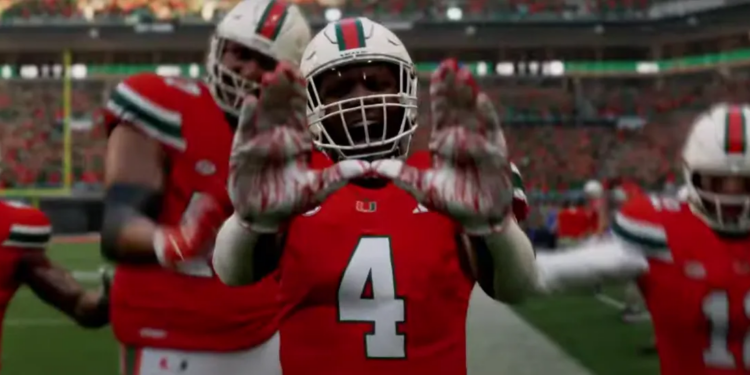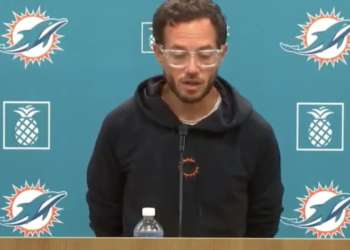Americans love sports, especially college sports. There is something special about rooting for your alma mater on a crisp autumn afternoon. However, there is no guarantee that college sports will keep moving forward on a level playing field.
This is one area where lawmakers can help, but they must take the right steps. They should employ a market-oriented approach, rather than attempting to over-regulate the industry. There are two bills pending in Congress, but only one would be effective in the long term.
The first proposal called the Student Athlete Fairness and Enforcement Act (SAFE) would be the wrong big government approach. The bill — pushed by left-leaning Democratic Sens. Richard Blumenthal of Connecticut, Cory Booker of New Jersey, and Maria Cantwell of Washington — imposes what appears to be a compulsory licensing scheme on sports content.
This would void existing contracts of colleges, universities, and conferences, many lasting into the mid-2030s, with extension rights. (RELATED: Authorities Charge 14 People In Athlete-Involved Betting Ring Allegedly Backed By Mafia)
The SAFE Act bans extending current contracts and limits future media rights deals to a government-created committee. It states current media rights can’t be renegotiated or extended, resembling a government taking existing rights from schools and conferences.
Instead of settling the legal concerns around college sports, this idea would make things much worse. Just imagine the First Amendment cases that could be filed. Good for lawyers, bad for players.
Such a scheme would slash the value of school and conference sponsorships. Local broadcasters would be able to sell competing advertising for the same content, keeping the benefits for themselves instead of the schools or the athletes. One complaint that many fans have is that there are already too many broadcast outlets. Is your team’s game on broadcast TV, or cable, or streaming, or somewhere else? This bill would increase confusion rather than delivering clarity.
A more effective approach is also available in Congress titled the Student Compensation and Opportunity through Rights and Endorsements Act (SCORE). The bill — supported by Republican Reps. Jim Jordan of Ohio, Brett Guthrie of Kentucky and Tim Walberg of Michigan, among others — clarifies that student-athletes are not employees of their universities, which very few want to be anyway. It also preserves the educational model of broad-based college sports, protects women’s and Olympic sports, and secures an important source of funding for institutions that sponsor varsity sports as part of an enrollment strategy.
The bipartisan bill adopts a free market approach to protect athletes, codifying key parts of the “House” settlement, including a provision for a new governing body to oversee a revenue-sharing cap.
This cap shares billions with student athletes, focusing on ticket sales and sponsorships, especially amid NIL changes. It ensures athletes get a share of revenue while supporting programs, reflecting ongoing compensation debates.
The so-called House settlement was an agreement released because of a class-action lawsuit that allows schools of higher education to pay college athletes. Right now, there are different rules in different states, and the SCORE Act approach memorializes the right in federal law for athletes to be compensated for licensing their name, image and likeness.
The SCORE Act has wide support among educators and athletic directors alike.
“Our model produces class upon class of citizens and leaders, in many cases to student-athletes who but for their athletics ability would not be able to attend college,” wrote the members of the Collegiate Commissioners Association in a letter to lawmakers. “We urge you to pass the SCORE Act and look forward to continuing to work with you to develop and secure legislation that best serves the long-term interests of college sports,” they wrote.
This legislation both helps college sports while preserving the rights of athletes to make decisions on their own about the use of their name.
The free-market bill is also backed by the leaders of historically Black colleges and universities.
“Despite a range of historic recent changes in collegiate sports designed to support student-athletes, opportunities for predominantly Black students at our institutions are still at risk,” they write.
This approach has widespread support and is preferable to the left-leaning legislation that would effectively make athletes employees of their schools.
One concern involves state laws and court cases hindering conferences’ ability to offer development and competition opportunities for member institutions and student-athletes. The SCORE Act would clarify this, promote fair competition, and is a better alternative to the SAFE Act.
Real reform will deliver real results for athletes at our colleges and universities. Congress needs to act, but it has a good option right in front of it. Lawmakers should enact the SCORE Act and benefit all of us.
Leif Larson is a noted strategist with 20 years of experience in PR, public affairs and politics. He has contributed to the success of prominent political, corporate and advocacy groups across the country throughout his career.
The views and opinions expressed in this commentary are those of the author and do not reflect the official position of the Daily Caller News Foundation.
All content created by the Daily Caller News Foundation, an independent and nonpartisan newswire service, is available without charge to any legitimate news publisher that can provide a large audience. All republished articles must include our logo, our reporter’s byline and their DCNF affiliation. For any questions about our guidelines or partnering with us, please contact licensing@dailycallernewsfoundation.org.








![Florida Officer Shot Twice in the Face During Service Call; Suspect Killed [WATCH]](https://www.right2024.com/wp-content/uploads/2025/12/Inmate-Escapes-Atlanta-Hospital-After-Suicide-Attempt-Steals-SUV-Handgun-350x250.jpg)
![Keith Ellison Caught Promising to Fight State Agencies for Somali Fraudsters [WATCH]](https://www.right2024.com/wp-content/uploads/2026/01/Keith-Ellison-Caught-Promising-to-Fight-State-Agencies-for-Somali-350x250.jpg)







